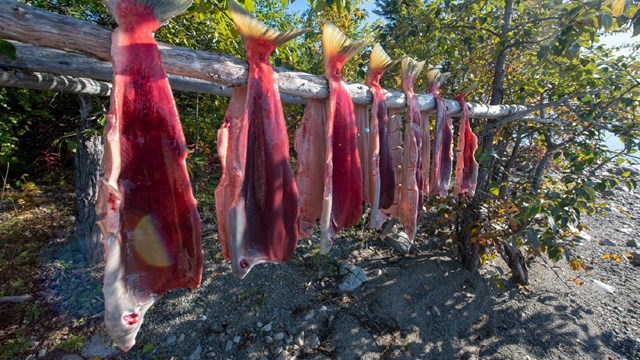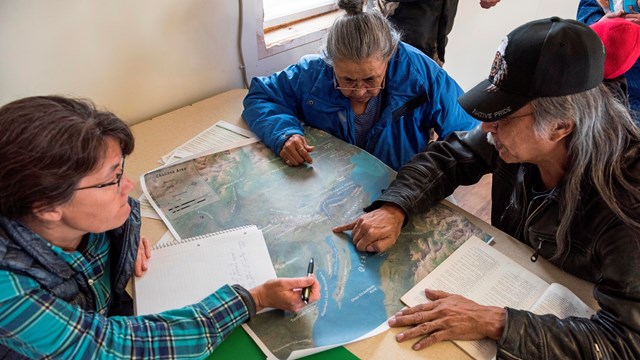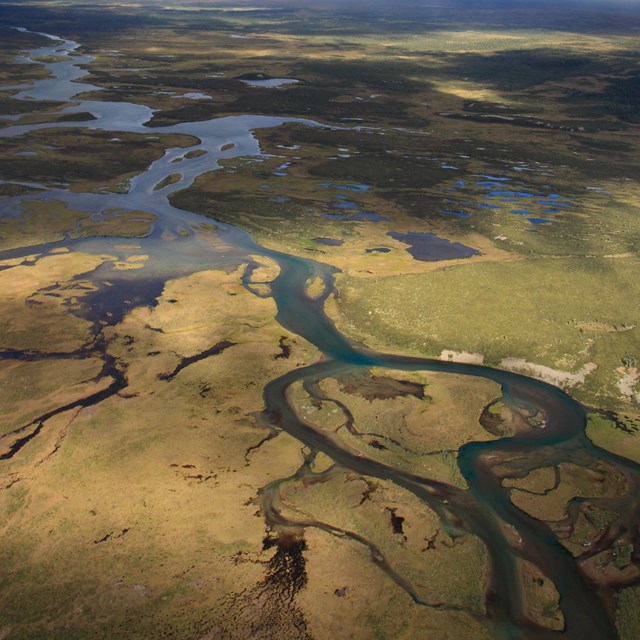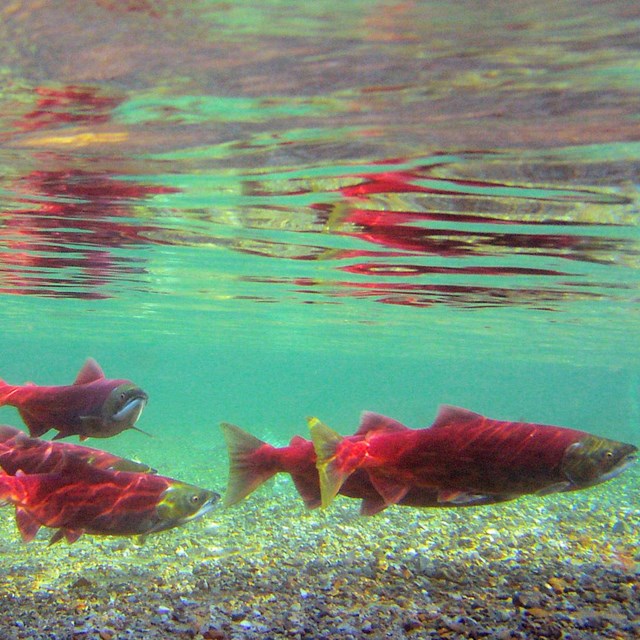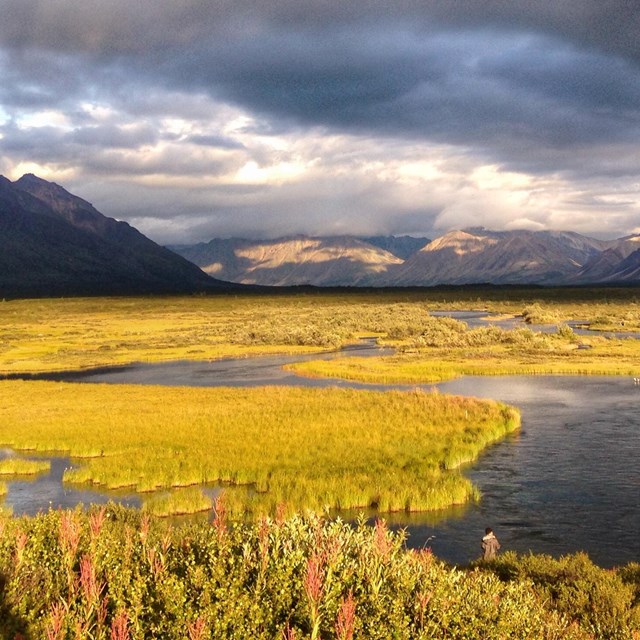|
The park’s ethnography staff scientifically document and describe cultural customs relevant to Lake Clark, and build strong relationships between the park, local communities, and remote park residents. Ongoing projects have provided knowledge and context that helps park managers protect culturally important resources and have provided opportunities for collaboration with Dena’ina communities. Łi Ta’a: Glacier Water by Antone Evan 

Left image
Right image
Dena'ina Ties to the Chulitna River and Sixmile Lake BasinsPark staff have worked with Portland State University researchers to conduct a Traditional Use Study of the Chulitna River-Sixmile Lake cultural landscape, which is important to present-day local Dena’ina people.For the past 100 years, the people of Nondalton Village have largely derived their subsistence fish, game, and water fowl from the Chulitna River and Sixmile Lake drainages. Archeological sites in the nearby Kijik (Qizhjeh) National Historic Landmark and Archeological District document sites associated with at least 1,000 years of Dena’ina history. This Traditional Use Study has been undertaken to document the entire array of historic and contemporary resources of cultural significance to the Dena’ina in the Chulitna drainage and Sixmile Lake area, including the Tazimina River and the upper Newhalen River. A Traditional Use Study produces information that park managers can use to protect cultural resources that are of national, state, and local importance. These documents also benefit the public by compiling information on the cultural heritage of national park lands, as well as guiding National Park Service staff in the development of public educational opportunities. The results from this study will aid in consulting and planning with the State of Alaska, Nondalton Tribal Council, Kijik Corporation, and other interested tribes. "RESPECT the land. You don’t even tease a moose. We have a lot of stories about that: Animals, you have to take care of them. If you don’t treat them right, they will go away from you. -Gladys Evanoff, in "Respect the Land, It's Like Part of Us" PDF, 124 pages (14.6 MB)Read the Traditional Use Study
|
Last updated: January 9, 2020

